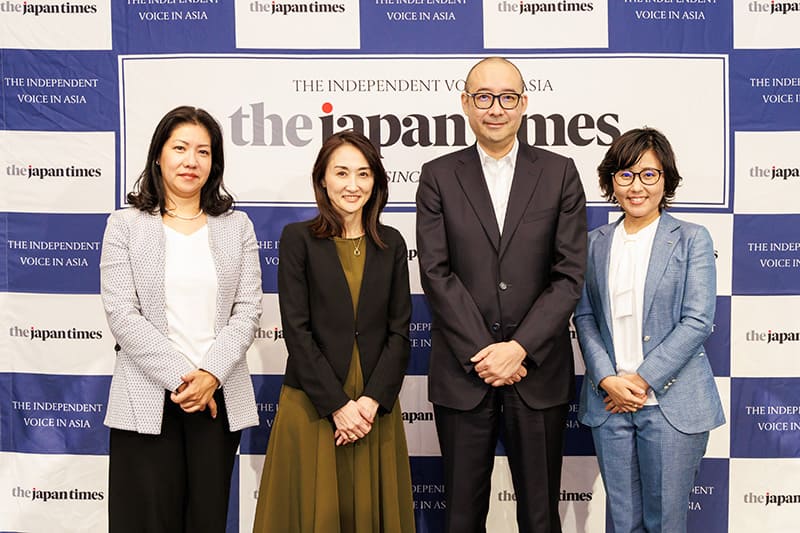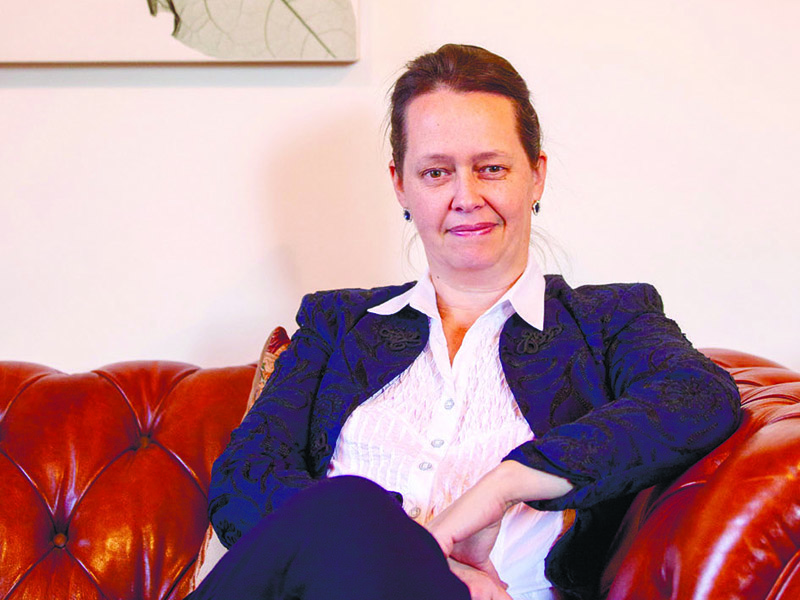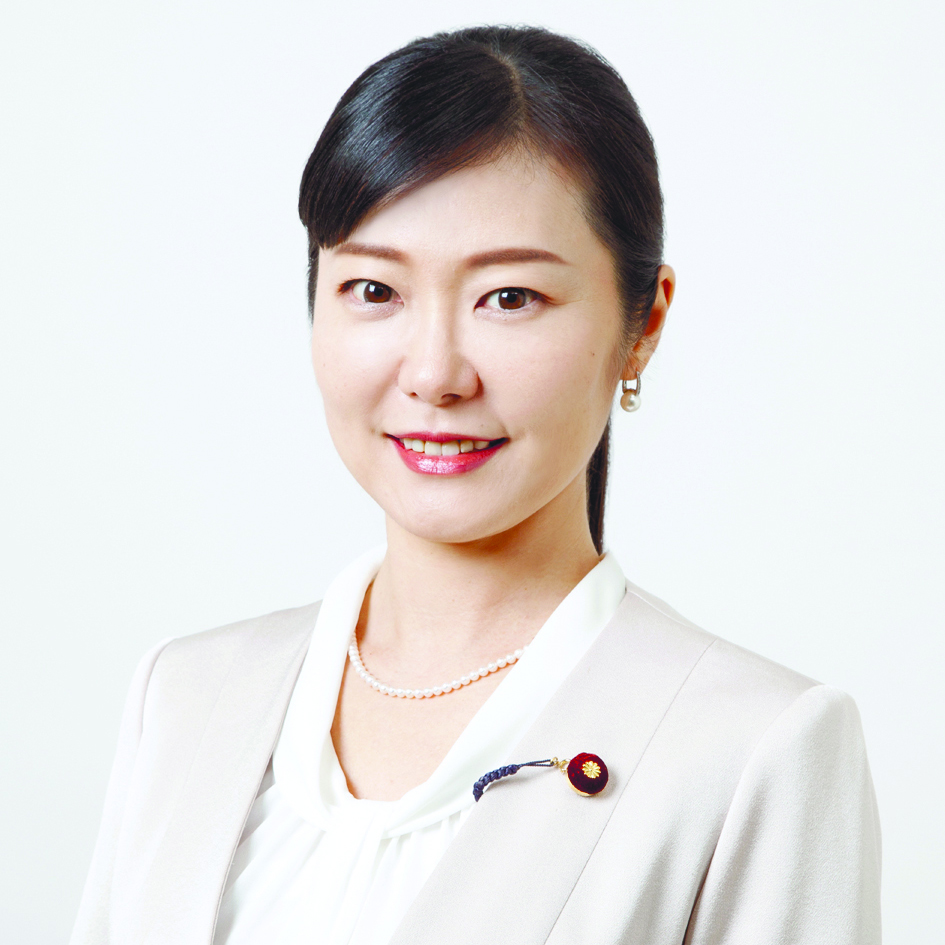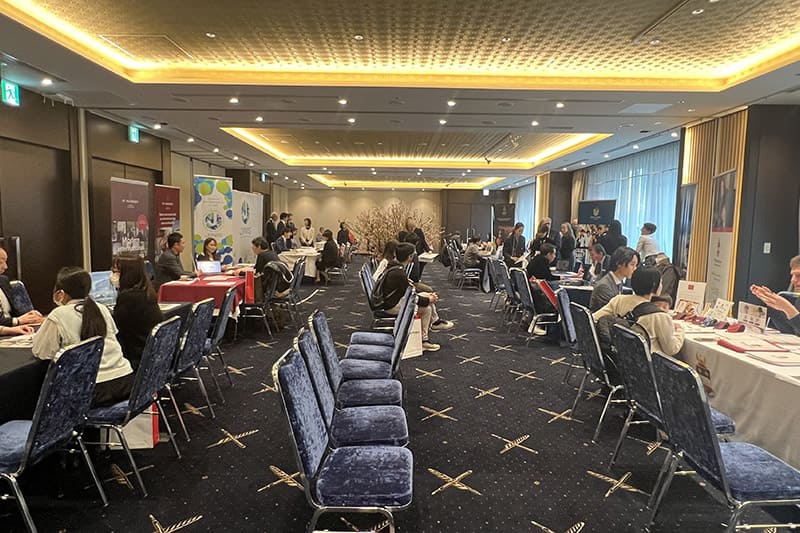December 20, 2024
Seminar on empowering change, nurturing female leaders
Reversing Japan’s ranking decline
Speaker: Minako Suematsu
The Japan Times chairperson
The Japan Times hosted the Next Generation Education Seminar 2024 on Oct. 30, with a focus on fostering future female leaders from a global perspective. The event was structured in two parts: a global session featuring speakers from European educational institutions and corporations, and a Japan session highlighting perspectives from leading Japanese companies. The seminar featured a keynote speech by Eve Jardine-Young, principal of Cheltenham Ladies’ College, one of the world’s leading girls’ schools and a prestigious British institution known for producing influential female leaders who have made their mark globally.
The seminar began with remarks from Minako Suematsu, chairperson and publisher of The Japan Times, Japan’s oldest English-language newspaper, founded in 1897. In her address, Suematsu discussed Japan’s position in the World Economic Forum’s 2024 Gender Gap Index, where the country ranked 118th out of 146 nations. While this marked an improvement from ranking 125th the previous year, she emphasized that significant challenges remain. Notably, while Japan saw progress in political, economic and health indicators, its educational ranking declined significantly, dropping from 47th to 72nd place.
This decline was attributed to several factors, including women’s underrepresentation in STEM fields and incomplete data on gender ratios at the Ph.D. level. Suematsu highlighted more fundamental challenges, including the scarcity of female leaders and the absence of an environment where women can freely pursue their chosen paths.
She also discussed Cheltenham Ladies’ College, which has spent 170 years creating an environment where young women can overcome unconscious biases and fully explore their potential. Having visited the institution in May, she praised its strategic location in central Cheltenham, noting both its security advantages and its success in nurturing international students from across the globe into future change-makers.

Eliminating gender disparities
Speaker: Yasumasa Nagamine
President of the Japan-British Society
Following Suematsu’s address, Yasumasa Nagamine, president of the Japan-British Society (JBS), delivered the honorary address, highlighting the significance of this seminar. Founded in 1948, the JBS has approximately 1,800 individual and 70 corporate members, and is dedicated to fostering friendship and understanding between the British and Japanese people.
Nagamine served as the Japanese ambassador to the United Kingdom from 2019 to 2021 and has worked in the U.K. three times during his diplomatic career. Having educated his two daughters in Japan, India, the U.S. and the U.K., he is well-versed in British education. He particularly welcomed this seminar featuring keynote speaker Eve Jardine-Young, principal of Cheltenham Ladies’ College, given its focus on empowering women and girls through education.
As deputy vice minister for foreign affairs, Nagamine served as sherpa (the national coordinator) for Japan at meetings of both the Group of Seven and the Group of 20, and played a key role in the G7’s Ise-Shima summit in 2016. Among the summit’s many significant outcomes, Nagamine highlighted as particularly noteworthy the creation of the G7’s guiding principles for building the capacity of women and girls as particularly noteworthy.
“The important pillar of that statement,” he said, “was to eliminate gender disparities and stereotypes in education and career and reformulate the kind of principles in which we put an emphasis on STEM education for girls.”
Echoing Suematsu’s concerns about the widening gender gap in Japanese education, particularly in STEM fields, Nagamine emphasized the seminar’s importance as a platform for Japanese and British educators to exchange views on addressing this challenge.
In closing, Nagamine thanked The Japan Times for organizing this timely and important seminar, noting that the Japan-British Society was honored to serve as its sponsor.
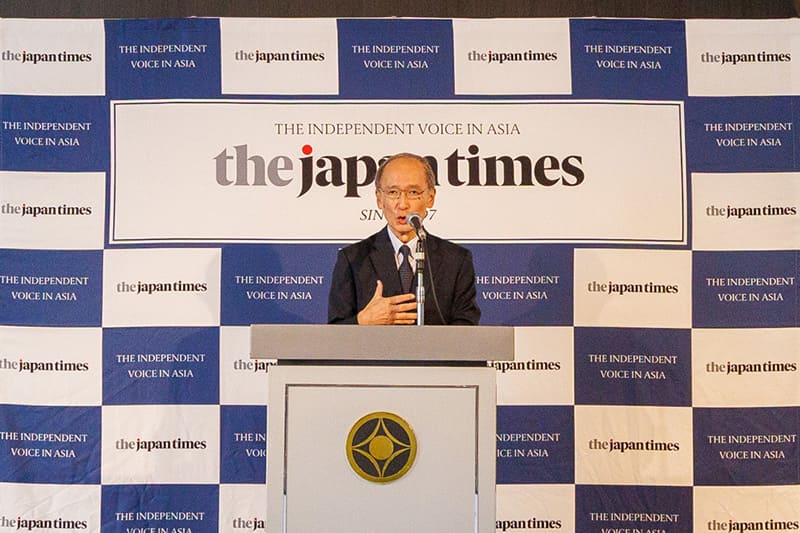
Shaping future leaders in a time of change and challenges
Speaker: Eve Jardine-Young
Principal of Cheltenham Ladies’ College
In the keynote address, Eve Jardine-Young, principal of the prestigious Cheltenham Ladies’ College in the U.K., discussed education in an era of rapid change and the development of the next generation of female leaders.
In 1854, four fathers of daughters established Cheltenham Ladies’ College as a day school, though it would later become the boarding school it is today. Their goal was to create new educational opportunities during a time when society needed recalibration. While boys had access to education, girls did not — a disparity that reflected society’s need for change. “Those fathers didn’t have the final solution nor the perfect solution, but they made a start,” Jardine-Young reflected. “Perhaps the journey of a thousand miles begins with one step, and I would love to honor those men.” Today, she carries forward this pioneering spirit by championing innovative education to meet contemporary challenges.
She emphasized the importance of preparing young people for an unpredictable future shaped by technological advances, AI, climate change and other emerging challenges. She stressed that developing leadership skills, collaboration abilities and resilience is essential, moving beyond conventional, standardized education approaches. “Leadership isn’t just about being the best leader, as that can sometimes mean control and power,” she said. Instead, she advocates for human-centered educational values that integrate three key elements: following, leading and being an ally.
Today, Cheltenham Ladies’ College hosts 700 boarding students from 45 countries. Jardine-Young emphasized that modern boarding education is founded on “trust and love,” stressing the importance of creating a safe and nurturing environment. This supportive atmosphere, she believes, helps students develop self-confidence and a positive outlook on their future.
In addition to traditional academic excellence, Jardine-Young highlighted the vital role of creativity and arts in education, particularly in STEM fields. She advocated for “STEAM” rather than just STEM, incorporating arts into science, technology, engineering and mathematics education. “Art and creativity belong within STEM. Because otherwise, the robots are going to do everything and where is the innovative thinking coming from? It will just be algorithms and it won’t be enough,” she explained. This integration of creative thinking with technical skills is seen as essential for developing well-rounded leaders who can tackle complex challenges.
Drawing from her own experience as a Cambridge-educated engineer who later transitioned to education, Jardine-Young addressed the ongoing challenges women face in STEM careers. She noted that while many girls excel in and enjoy science during their school years, retention of women in STEM careers remains problematic. “It’s not because they’re all lazy, I promise you that. It’s not that they just want an easier life,” she emphasized, suggesting that industries must examine why qualified women often leave STEM fields and take responsibility for creating more inclusive environments.
The principal also discussed the importance of developing resilience through controlled exposure to challenges during students’ formative years. She explained that experiencing and learning to handle failure, risk and conflict in a supportive school environment helps students develop the emotional intelligence and coping mechanisms they will need as adult leaders. “When you experience it as an adult, your body and your mind are saying, I know how I feel about this. I know my response to fear. I know my response to anger. I know my response to conflict,” she said, emphasizing how early experiences shape future leadership capabilities.
While maintaining a balance between tradition and innovation, the school remains dedicated to developing the next generation of female leaders who will be prepared to navigate an unpredictable future.
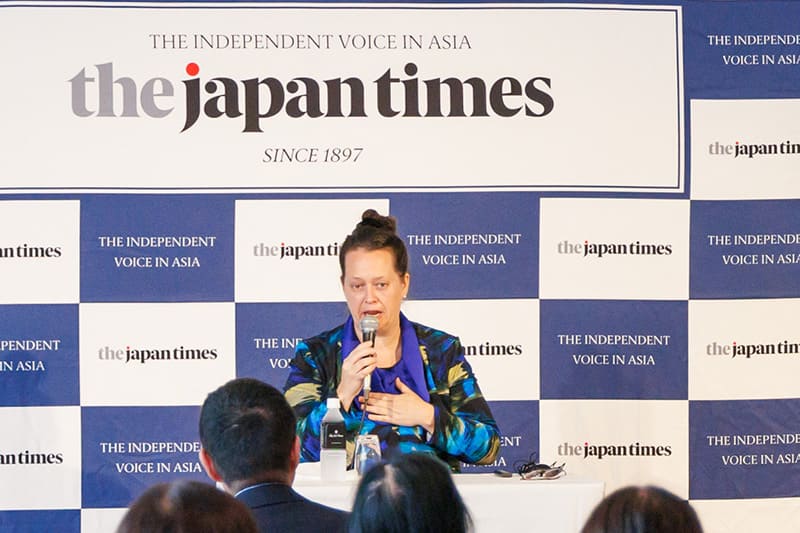
Institutional initiatives, generational change and active male participation
The first panel discussion of the seminar convened leaders from multinational corporations and academic institutions to explore the characteristics of organizations where women can play an active role. The distinguished panel featured June Miyachi, president & CEO of Cartier Japan; Alison Beale, representative of the University of the Oxford Japan Office; Michael Rob Gray, adviser to Jinseki International School and former principal of Le Rosey in Switzerland; and Pierre-Yves Lombard, representative director of Lombard Odier Trust Co. The discussion was moderated by Mio Takaoka of DNX Ventures.
The session centered on two critical themes. First, the panel discussed the root causes of Japan’s gender gap, examining whether the current disparities are unique to Japanese society or reflect challenges that other nations have faced. Second, the panelists shared their concrete initiatives and personal experiences in addressing gender inequality within their respective institutions.
Lombard shared his contrasting experiences between Singapore, with notable female leaders in C-suite and next-generation roles in the banking industry, and Japan, where female representation in leadership remains notably low. He emphasized that the issue is fundamentally about talent rather than gender, expressing the conviction that Japan has abundant female talent ready to be tapped and empowered.
Gray, reflecting on his experience in education, noted that gender disparity still exists in educational leadership positions. He emphasized that gender should not be a barrier, stressing the importance of collaboration between men and women.
Beale pointed out that gender disparity in the workplace is not unique to Japan — Europe and the United States have faced similar challenges. While Japan has made significant progress, she noted that the pace of change has been too gradual. Commenting on promotion systems, she highlighted the stark contrast between Japan and Western countries as Japan continues to follow a predominantly seniority-based system.
Miyachi challenged the notion that Japan’s gender gap is purely cultural, pointing out that Western countries faced similar challenges decades ago. She highlighted that the key issue is awareness, noting that “thinking there isn’t an issue is the issue.” She emphasized that once awareness is raised, the recognition of gaps and barriers follows.
The panelists agreed that Japan’s situation mirrors where many Western countries were 20 to 30 years ago, suggesting that change is possible with proper initiatives and commitment. Moving from analysis to action, the panelists shared concrete initiatives their institutions have implemented to advance women’s leadership. Miyachi highlighted four key important approaches in creating an organization where women and men can thrive: leadership endorsement from the top, building supportive communities, clear performance metrics, and fostering self-confidence among women.
Lombard concurred with these initiatives while emphasizing his organization’s focus on attracting the right talent at all levels and nurturing their growth within the company. Lombard described the system as a “tree-like structure,” requiring careful nurturing at all organizational levels. The firm’s initiatives ensure talent retention and growth, with special attention to key career phases, including maternity leave. Success requires both top-down leadership and visible role models of women who have risen to C-suite positions and regional leadership roles.
Gray shared insights from international education, emphasizing the importance of challenging gender stereotypes early through curriculum design and extracurricular activities. “This is not men against women or women against men,” he said. While traditional institutions often feature male-dominated management styles that emphasize authoritative decision-making and crisis management, Gray said that modern organizations require a more collaborative and caring approach, regardless of gender. Many women undervalue their strengths due to societal pressures and self-perception, and leaders must actively encourage and mentor them to take on leadership roles.
Beale outlined various initiatives that U.K. universities have implemented to promote gender equality. She highlighted the Athena Swan Award, a key national program that offers bronze, silver and gold certifications. Universities must demonstrate concrete progress in achieving gender equality to receive these awards, which have become crucial for institutional funding. Using Oxford University as an example, she described specific measures such as ensuring gender-balanced panels for recruitment and academic events.
The discussion highlighted that while Japan ranks poorly in global gender gap rankings, practical solutions and meaningful progress are emerging. The panelists agreed that combining institutional initiatives, generational change and active male participation offers the most promising path forward for nurturing future female leaders in Japan.

Companies position organizational diversity as a competitive advantage
In the Japan session, leaders spearheading diversity initiatives from three of Japan’s most prominent companies convened to discuss challenges and achievements of organizations chosen by the next generation. The session was moderated by Ryoko Ishihara, president and representative director of Surpass Corp. The distinguished panel included Ayako Hirofuji, the corporate executive officer, executive officer, chief financial officer and chief diversity, equity and inclusion officer of Shiseido Co. Ltd.; Yumi Takaki, the DEI promotion department manager of Suntory Holdings Ltd.; and Kotaro Sueyoshi, the deputy general manager of the Sustainable Business Department at Mizuho Financial Group.
In today’s increasingly competitive global landscape, companies are developing distinctive strategies to capture next-generation markets. Shiseido has set its sights on becoming the world’s leading skin-beauty company by 2030, with operations spanning 120 countries and regions worldwide. The company emphasizes regional diversity in its business development while pursuing global synergies.
From its founding in 1899, Suntory has evolved into a truly global enterprise, with international employees making up approximately half its workforce and overseas markets accounting for roughly 50% of its sales. The company’s transformation has been remarkable: Just 30 years ago, Suntory was a domestic operation with 5,000 employees; today, it is a global corporation employing 40,000 people. Suntory continues to expand its global footprint guided by its founding spirit of “Yatte Minahare” (“Go for It”) — the spirit of bold ambition to dream big, take challenges and never give up.
Mizuho Financial Group harnesses the collective strength of its 60,000 employees across 40 countries under its collaborative vision of “Taking on challenges together.” With its new purpose statement, “Proactively innovate together with our clients for a prosperous and sustainable future,” Mizuho is dedicated to delivering sustainable financial services. The group’s strategic focus lies in nurturing next-generation industries, developing new markets and creating value through customer partnerships.
A common thread among these companies is their strategic positioning of organizational diversity as a competitive advantage. Shiseido, for instance, has achieved 40% female representation in management positions. Hirofuji reflected: “This transformation didn’t happen overnight. Twenty years ago, our management was entirely male.” She particularly emphasized the crucial role of top-level commitment and the importance of maintaining unwavering resolve that “doesn’t accept excuses from the field.” Drawing from her experience during her posting in Indonesia, she also highlighted the value of providing flexible support that transcends conventional systems.
At Suntory, Takaki champions the concept of DEI for all. She has implemented diverse strategies tailored to organizational needs, including company-wide workshops that engage everyone from new hires to executives. “Inclusion can only succeed when the entire organization participates,” she emphasized. The company also promotes diverse work experiences early in employees’ careers and encourages cross-divisional development. Suntory has also established concrete targets, including an ambitious goal of achieving 100% participation in parental leave among male employees.
Mizuho Financial Group emphasizes a two-way approach: commitment from the top coupled with bottom-up initiatives. The company has implemented reverse mentoring programs to enhance management-level awareness. “As a financial institution, we have a responsibility to improve society,” said Sueyoshi, highlighting specific initiatives such as the development of LGBTQ-friendly financial products. The group is redefining the role of financial institutions through a three-dimensional framework of “risk, return and impact” to create broader social value.
As the session drew to a close, the panelists shared their visions for Japan’s future. “I envision creating innovation through more direct engagement and open expression of our differences. I want to build an organization that breaks free from peer pressure and truly leverages diversity,” Hirofuji said. Takaki emphasized: “We must embrace growth opportunities and develop through experience. Cross-company collaboration can expand our possibilities.” Sueyoshi concluded: “Japan’s workforce of 120 million represents tremendous diversity and potential. We strive to be a financial institution that remains close to our clients, walking alongside them on their journey.”
The Next Generation Education Seminar provided a valuable platform for organizations and institutions committed to advancing women’s status in Japanese society.
